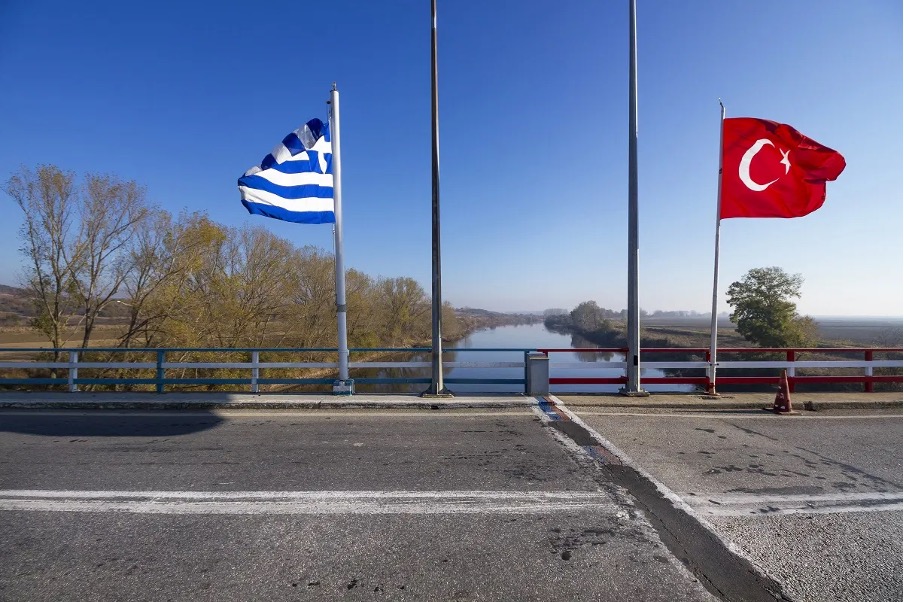A letter signed by Turkish Foreign Minister Mevlüt Çavuşoğlu that addresses Turkey’s long-standing disputes with Greece over the Aegean Sea was sent to representatives of the European Union, the United Nations and NATO on Sept. 1, the state-run Anadolu news agency reported on Tuesday, citing diplomatic sources.
Greece and Turkey have a fraught history going back centuries with disputes over maritime borders and the 1974 division of Cyprus.
According to Anadolu, the letter in which Çavuşoğlu “explained Turkey’s attitude and views” on the solution of the two countries’ disputes over sovereignty and related rights in the region of the Aegean Sea was sent to 25 capitals of the EU, EU foreign policy chief Josep Borrell and the permanent members of the UN Security Council as well as NATO Secretary-General Jens Stoltenberg and UN Secretary-General Antonio Guterres.
In the letter Çavuşoğlu accused Greece of engaging in “unlawful actions” and making “maximalist demands” in the Aegean, Anadolu said, adding that he listed a number of “problems” in the Aegean Sea, including “the width of the territorial waters and national airspace, the limitation of the continental shelf and territorial waters and the violation of the non-military status of the Eastern Aegean Islands.”
Turkey believes the Aegean dispute can be resolved within the framework of international law with the mutual recognition of the fundamental rights and legitimate interests of the two countries, Çavuşoğlu said, while accusing Greece of “avoiding dialogue, escalating tensions and making the EU a part of Aegean disputes,” according to Anadolu.
Greek Foreign Minister Nikos Dendias also sent letters to Borrell and Stoltenberg earlier this week, citing public remarks recently made by Turkish President Recep Tayyip Erdoğan that are seen as a direct threat to Greece’s territorial integrity.
Erdoğan on Saturday told a rally that Greece would pay a “heavy price” for harassing Turkish fighter jets over the Aegean and referenced Turkey’s 1922 takeover of the Greek city of Smyrna, now İzmir, a bitter memory for the Greeks.
“When the time comes, we will do what’s necessary. As we say, we may come suddenly one night,” the president said, using his oft-repeated words when he threatens to launch an operation into neighboring Syria.
The president’s statements were condemned by Jan Lipavský, minister of foreign affairs of the Czech Republic, and Peter Stano, the European Commission’s foreign policy spokesman, among other international figures.
Turkey said Greece had used a Russian-made air defense system to harass Turkish jets and is stationing troops on islands in the Aegean Sea in violation of peace treaties.
Greece rejects the allegations and often accuses Turkey of raising tensions, including through overflights of Greek islands.
Source: Turkish Minute



